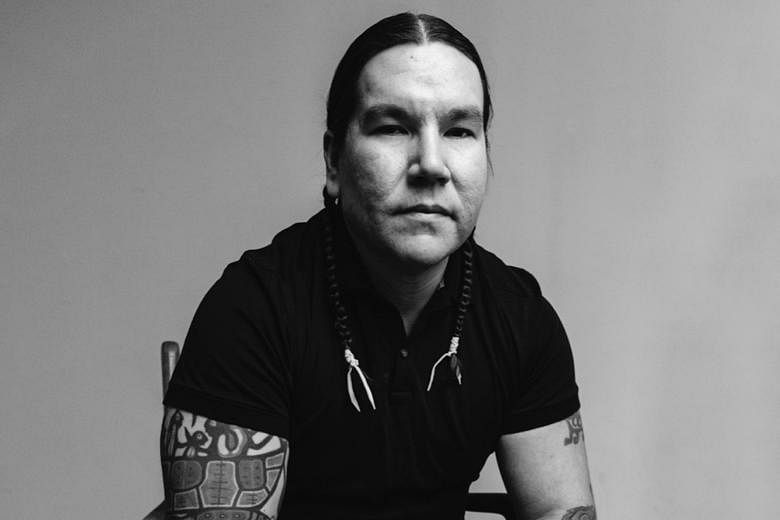Moon Of The Crusted Snow begins like many post-apocalyptic novels do: an unexplained blackout, a looming winter, a community on edge.
What sets this 2018 novel by Canadian journalist Waubgeshig Rice apart, however, is that this apocalypse is told from the point of view of a remote northern community of the Anishinaabe, who are indigenous people of Canada.
"I was always a big fan of post-apocalyptic and dystopian literature growing up," says Rice, who is from the Wasauksing First Nation.
"But I realised my people had already endured that. Their world had ended as a result of colonialism, having been displaced from their homeland and had their culture violently removed from them. Many indigenous nations could rightfully argue that this is a post-apocalyptic dystopia they are living in."
Rice, 40, is among the Canadian authors coming to the Singapore Writers Festival, where Canada is the country of focus and which will have a spotlight on indigenous voices from around the world.
The festival theme, A Language Of Our Own, has particular resonance for Rice.
Under Canada's Indian Residential School system, indigenous children were removed from their families and placed in residential schools, where they were forbidden from speaking their native languages.
-
BOOK IT / TRUTH AND RECONCILIATION: WAUBGESHIG RICE
-
WHERE: The Arts House, Living Room, 1 Old Parliament Lane
WHEN: Nov 3, 5.30pm
ADMISSION: Festival pass, $25 from Sistic
By Rice's parents' generation, the stigma associated with speaking Anishinaabe languages was so great that he himself is not fluent, although he is trying to learn more and represent languages such as Ojibwe in his work.
He has written another novel, Legacy (2014), and short story collection Midnight Sweatlodge (2011).
"As an indigenous person, there's a lot connected to language that we're able to reclaim and revive when we take control and command of our own stories," says Rice, who is married with a three-year-old son.
He is keen to see at the festival how other indigenous people are expressing themselves in literature.
"I look forward to bonding over that shared experience of surviving the brutality of colonialism and finding ways to speak our truths by writing books, teaching people and making connections."
MORE STORIES:
Reflecting those whom history failed


